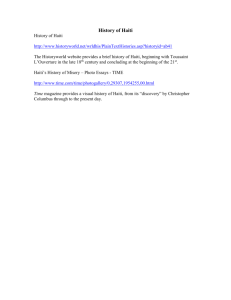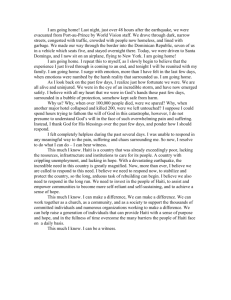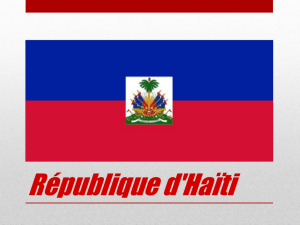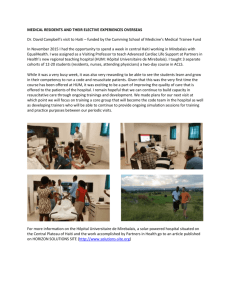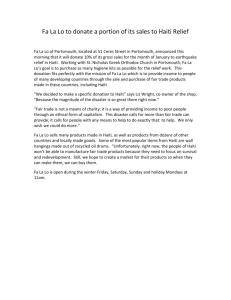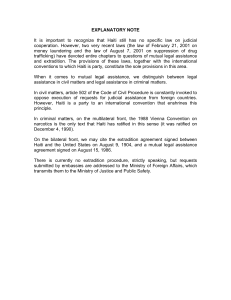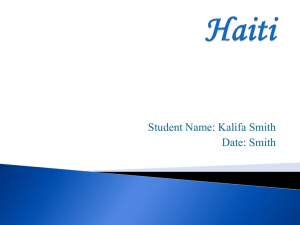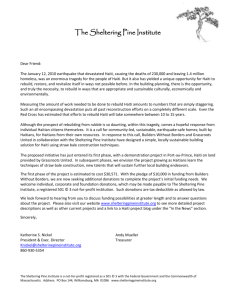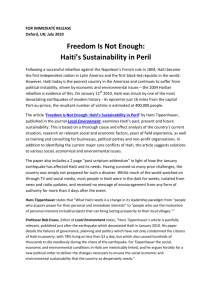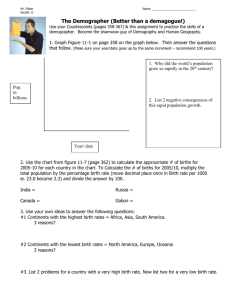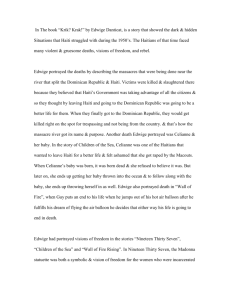From CIA Fact book The poorest country in the
advertisement
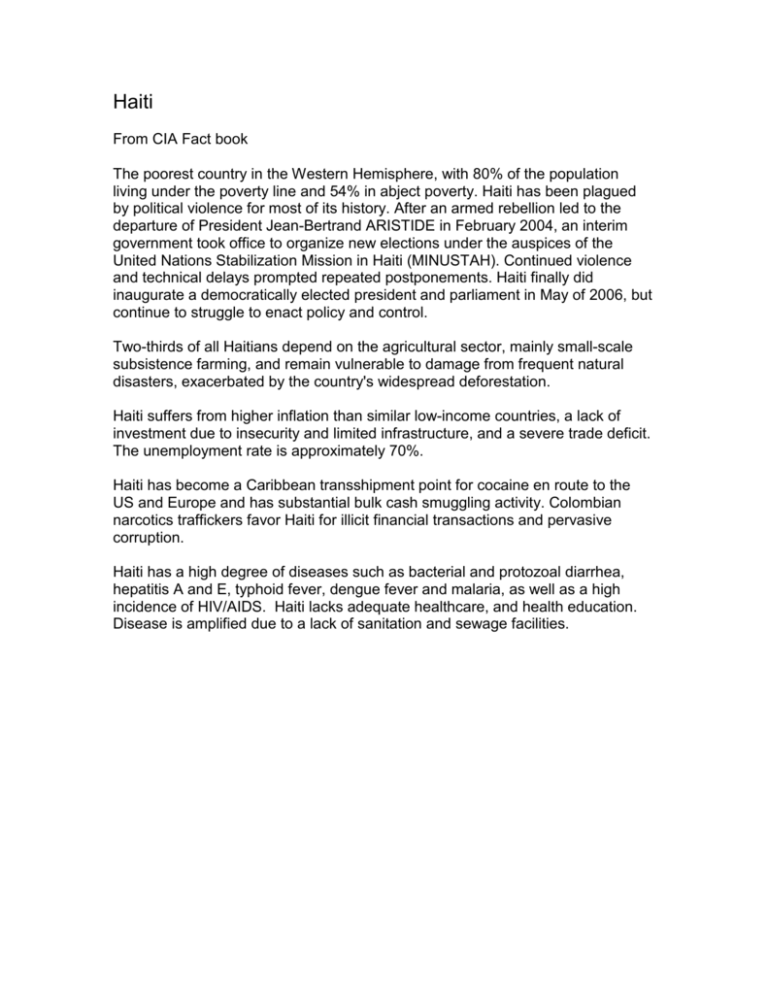
Haiti From CIA Fact book The poorest country in the Western Hemisphere, with 80% of the population living under the poverty line and 54% in abject poverty. Haiti has been plagued by political violence for most of its history. After an armed rebellion led to the departure of President Jean-Bertrand ARISTIDE in February 2004, an interim government took office to organize new elections under the auspices of the United Nations Stabilization Mission in Haiti (MINUSTAH). Continued violence and technical delays prompted repeated postponements. Haiti finally did inaugurate a democratically elected president and parliament in May of 2006, but continue to struggle to enact policy and control. Two-thirds of all Haitians depend on the agricultural sector, mainly small-scale subsistence farming, and remain vulnerable to damage from frequent natural disasters, exacerbated by the country's widespread deforestation. Haiti suffers from higher inflation than similar low-income countries, a lack of investment due to insecurity and limited infrastructure, and a severe trade deficit. The unemployment rate is approximately 70%. Haiti has become a Caribbean transshipment point for cocaine en route to the US and Europe and has substantial bulk cash smuggling activity. Colombian narcotics traffickers favor Haiti for illicit financial transactions and pervasive corruption. Haiti has a high degree of diseases such as bacterial and protozoal diarrhea, hepatitis A and E, typhoid fever, dengue fever and malaria, as well as a high incidence of HIV/AIDS. Haiti lacks adequate healthcare, and health education. Disease is amplified due to a lack of sanitation and sewage facilities.
